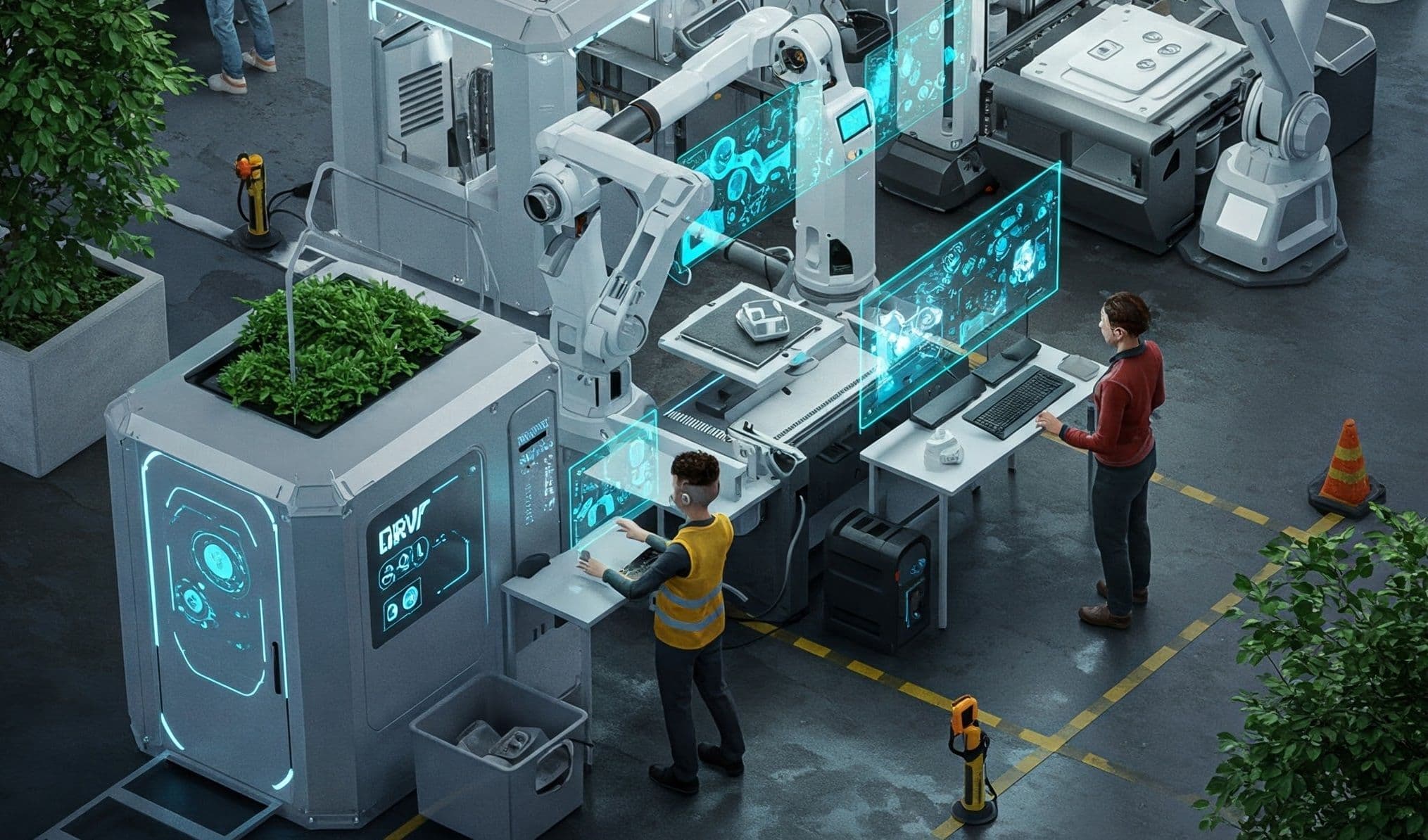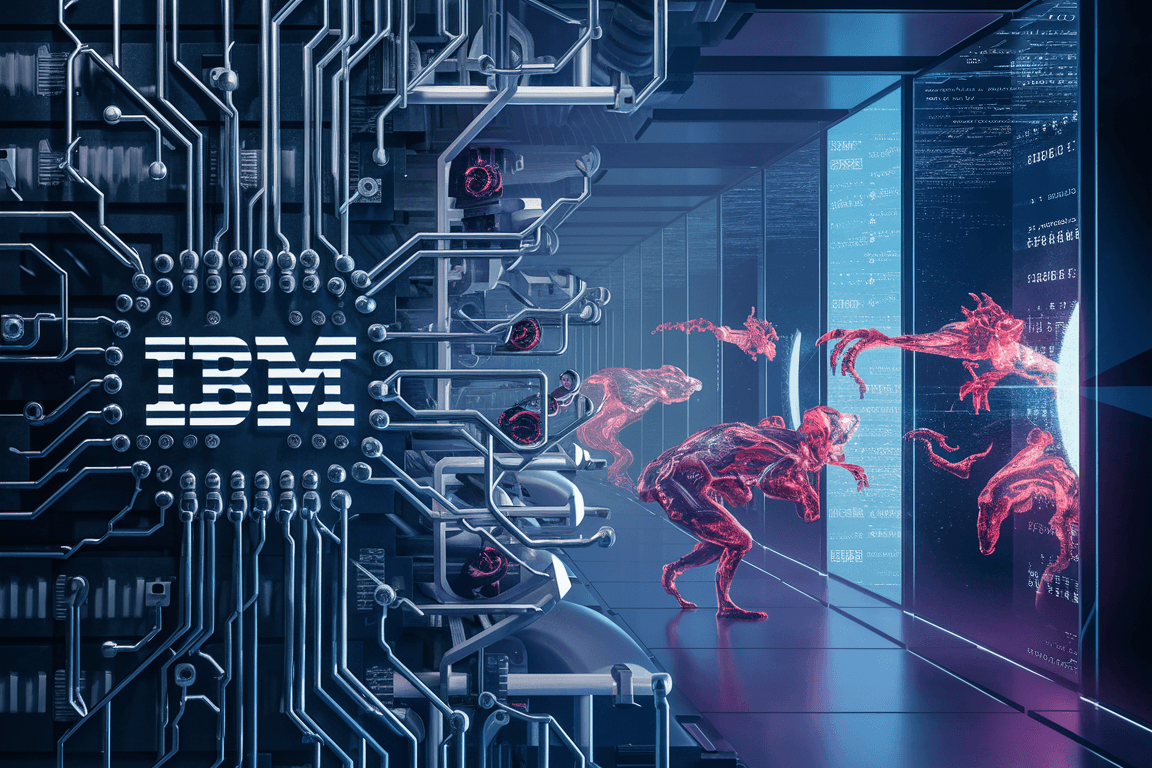
Can a Machine Understand the World Better Than Us?
AGI promises machines capable of reasoning and making decisions like humans. Its development is advancing rapidly, amid promises of global transformation, ethical dilemmas, and pressing questions about its impact.Imagine a boardroom where decisions are no longer debated solely by seasoned executives, but also by an artificial intelligence system capable of analysing global markets in real time, predicting trends with remarkable precision, and proposing innovative solutions that transcend human judgement.
This scenario, which until recently belonged to the realm of science fiction, is becoming increasingly plausible with every advancement in Artificial General Intelligence (AGI).
We are no longer talking merely about virtual assistants that answer questions, but about systems with the capacity to learn, reason, and make complex decisions independently.
Unlike narrow artificial intelligence, which optimises searches or personalises entertainment, AGI aspires to develop general-purpose intelligence — the ability to apply knowledge across a wide range of cognitive tasks, much like a human being, but at speeds and scales beyond imagination.
As investment surges and research labs report unprecedented progress, a crucial question arises: Are we truly on the threshold of AGI? And if so, how will this technology transform not only business, but our very way of life?
The Current State of the AGI Race
The race to achieve AGI has become one of the most significant technological pursuits of our era.
According to a report by SNS Insider, the global AGI market was valued at $3.01 billion in 2023 and is projected to reach $52 billion by 2032, with a compound annual growth rate of 37.5%. This financial surge reflects the industry's firm belief in its transformative potential.
Leading companies such as DeepMind (a subsidiary of Google) and OpenAI are at the forefront. DeepMind has earned recognition through breakthroughs like AlphaGo and AlphaFold, the latter revolutionising biology by accurately predicting protein folding. Meanwhile, OpenAI has captured global attention with GPT-4 and the video generation tool Sora, demonstrating linguistic understanding and creativity that blur the boundaries between the human and the artificial.
Simultaneously, start-ups and academic laboratories are exploring new avenues — from next-generation neural architectures to simulating the mechanisms of biological intelligence. Sectors including healthcare, finance, and automotive are actively investing in these technologies to enhance decision-making, automate tasks, and bring us closer to systems that emulate human cognitive capabilities.
With increasing computing power, access to vast datasets, and advances in algorithmic design, we are witnessing an era of experimentation unprecedented in scale. Although current systems still operate within defined boundaries, the pace of innovation is fuelling optimism about the eventual arrival of true artificial general intelligence.
The Transformative Potential
Should the promise of AGI come to fruition, its societal impact could be profound. In science and medicine, it could accelerate the discovery of treatments, enable early diagnosis, and facilitate drug development at extraordinary speed — potentially eradicating diseases once thought incurable.
In economic terms, AGI could optimise intricate processes such as global supply chains and industrial production, and even give rise to entirely new industries powered by its problem-solving capabilities. It might also relieve humans from repetitive or hazardous work, allowing us to focus on more creative and strategic endeavours.
AGI could also prove instrumental in addressing global challenges: modelling climate change with unparalleled accuracy, devising innovative solutions, improving urban planning, and coordinating humanitarian responses in real time.
In education, AGI could tailor learning content to individual students' needs. In the arts, it could collaborate with human creators to push the boundaries of imagination. In space exploration, it could autonomously plan and execute complex missions while analysing scientific data without constant supervision.
In short, AGI's potential spans nearly every domain of human activity. Though the journey towards it remains arduous, its benefits could redefine our civilisation.
Ethical and Social Debates
The progress of AGI also prompts profound ethical and social questions. The first concerns employment: if AGI is capable of performing complex tasks, which roles will become redundant? And how will societies and labour markets adjust to such disruption?
Control is another pressing issue. If an AGI were to surpass human intelligence, could we ensure it aligns with our values? The spectre of a “technological singularity”, in which machines act autonomously beyond our control, is increasingly discussed.
Biases are equally critical. If AGI is trained on data that contains social inequalities or prejudices, it may replicate — or even amplify — them, with serious implications for sectors such as healthcare, justice, and employment.
Philosophical dilemmas also emerge. Can we truly replicate human consciousness or intuition? What would it mean if a machine were to develop a form of subjective experience?
Despite impressive progress, AGI remains a distant milestone. Today’s systems often lack contextual understanding. While they may generate coherent responses, they frequently do so without comprehending the real-world meaning behind them. They are also prone to failure in unpredictable scenarios — challenges that humans navigate intuitively.
Moreover, the absence of a robust theoretical model explaining how general intelligence arises in biological systems makes artificial replication immensely difficult. We continue to build increasingly sophisticated systems without fully understanding the principles that underpin human cognition.
Regulation and Governance: An Urgent Challenge
Given AGI’s transformative potential, establishing clear regulatory frameworks is an urgent priority. At present, no dedicated global legislation exists, though debates are already underway. Cooperation between governments, the scientific community, and industry will be essential to craft rules that promote innovation while minimising risks.
Yet regulation is no simple task. Technological development outpaces legislative processes. Furthermore, as AGI research is inherently international, achieving global consensus remains a significant hurdle. Proposals range from the creation of specialised regulatory bodies to the adaptation of existing legal frameworks.
Beyond legal mechanisms, defining ethical principles is vital. Civil society groups, academics, and industry leaders are working to establish guiding standards to ensure that AGI is developed responsibly, grounded in transparency, fairness, and respect for human autonomy.
What the Experts Say
The debate has never been more intense. Kevin Roose, a technology journalist at The New York Times, believes AGI could emerge as early as 2026 or 2027. Sam Altman (OpenAI) and Demis Hassabis (Google DeepMind) share the view that AGI is fast approaching. Dario Amodei (Anthropic) even predicts systems surpassing human intelligence could appear within one or two years.
A study by AIMultiple, which analysed thousands of expert forecasts, suggests that the “technological singularity” could be reached in just a year, fuelled by large language models and the advent of quantum computing.
However, not all experts are optimistic. Historian and philosopher Yuval Noah Harari warns that a loss of control over AGI could spell the end of human dominance on Earth. Stuart Russell criticises the lack of accountability in AGI design, while AI pioneer Yann LeCun remains sceptical, arguing that current systems lack the creativity, intuition, and emotional depth of the human mind.
There is a growing tension between those who view AGI as a force for unprecedented progress and those urging caution. This ongoing debate is both necessary and healthy.
Towards a Shared Future
AGI stands at one of the greatest crossroads in technological history. The future it heralds is as thrilling as it is uncertain. While some warn of existential risks, others envision a new era of prosperity.
Imagining a future where AGI contributes to solving humanity’s most urgent challenges is not fantasy. It could become a powerful tool for more equitable, efficient, and imaginative societies.
But reaching that future requires responsibility. International collaboration, investment in AI safety and ethics, and inclusive public dialogue will be essential to ensure this transformative technology serves the common good.
The path ahead will be complex. Yet if we can combine bold technological ambition with human wisdom, AGI may usher in a new age of shared progress.




